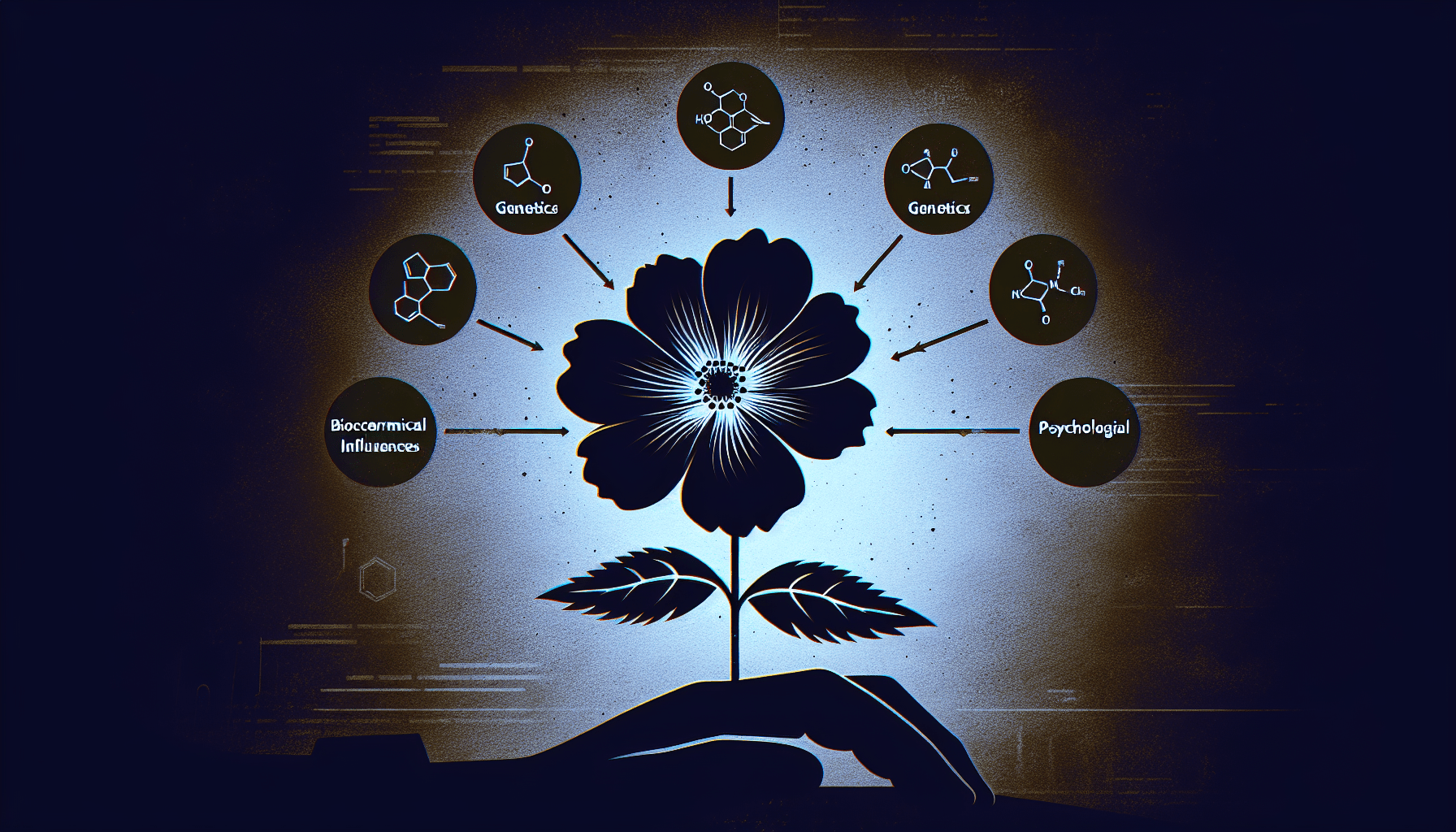Depression is a complex and often misunderstood mental health condition that affects millions of people worldwide. Understanding its underlying factors is crucial to providing effective support and treatment to those who suffer from it. In this article, we will explore the five key factors that contribute to depression, shedding light on this important topic and offering valuable insights that can help individuals struggling with this debilitating condition regain hope and healing. Through exploring these factors, you will gain a deeper understanding of the complexities of depression and the various aspects that contribute to its development and manifestation. Depression is a complex mental health condition that can be caused by a variety of factors. Understanding these factors is crucial in order to effectively treat and manage depression. In this article, we will explore the five main factors that contribute to the development of depression: genetics, biochemical factors, psychological factors, environmental factors, and social factors.
Genetics
Family History: One of the key factors that can increase a person’s risk of developing depression is their family history. Research has shown that individuals with a family history of depression are more likely to experience depression themselves. This suggests a genetic component to the condition, where certain genes may predispose individuals to depression. While genetics alone cannot cause depression, it can play a significant role in determining a person’s susceptibility to the condition.
Gene Variants: Along with family history, specific gene variants have also been associated with an increased risk of depression. These gene variants are involved in the regulation of neurotransmitters, which are chemicals in the brain that play a role in mood regulation. Variations in these genes can lead to imbalances in neurotransmitter levels, which can contribute to the development of depression. However, it’s important to note that having these gene variants does not guarantee that a person will develop depression, as other factors also come into play.
Biochemical Factors
Neurotransmitter Imbalance: As mentioned earlier, imbalances in neurotransmitters can contribute to the development of depression. Neurotransmitters such as serotonin, dopamine, and norepinephrine are involved in regulating mood, appetite, and sleep patterns. When there is a deficiency or an imbalance of these neurotransmitters, it can result in symptoms of depression. Medications used to treat depression often aim to rebalance these neurotransmitter levels, helping to alleviate symptoms.
Hormonal Imbalance: Hormones also play a role in depression, particularly in women. Fluctuations in hormone levels during menstruation, pregnancy, and menopause can contribute to mood changes and increase the risk of developing depression. Additionally, hormonal imbalances due to conditions such as thyroid disorders or hormonal medications can also lead to depressive symptoms. Understanding and addressing these hormonal imbalances is crucial in effectively managing depression in affected individuals.
Psychological Factors
Negative Thinking Patterns: One of the psychological factors that can contribute to the development of depression is negative thinking patterns. Individuals who tend to have a pessimistic outlook, constantly focus on the negative aspects of life, and have a distorted perception of events are more likely to experience depression. Negative thoughts can reinforce depressive feelings and make it difficult for individuals to see positive aspects of their lives. Cognitive behavioral therapy (CBT) is one approach that can help individuals identify and challenge these negative thinking patterns.
Low Self-esteem: Low self-esteem is another psychological factor that can contribute to depression. People with low self-esteem often have a negative self-image, feel inadequate, and have a persistent fear of rejection or failure. This can lead to feelings of worthlessness and can contribute to the development of depression. Building self-esteem through therapy and self-care practices can help individuals combat these feelings and reduce the risk of depression.
Environmental Factors
Traumatic Experiences: Experiencing trauma, such as physical or emotional abuse, neglect, or the loss of a loved one, can have a profound impact on a person’s mental health. Traumatic experiences can trigger the development of depression, especially if they are not properly processed or if the individual lacks sufficient support. Therapy, support groups, and other trauma-focused interventions can help individuals cope with and heal from traumatic experiences, reducing the risk of depression.
Stressful Life Events: Stressful life events, such as job loss, financial difficulties, or relationship problems, can also contribute to the development of depression. Chronic or overwhelming stress can disrupt the brain’s chemistry, leading to mood changes and increasing the risk of depression. Developing healthy coping mechanisms, seeking support, and reducing sources of stress can help individuals better manage and prevent depression in the face of these challenges.
Social Factors
Loneliness: Feeling isolated and lonely can significantly impact a person’s mental health. Lack of social connection and support can contribute to the development of depression. Social interaction and meaningful relationships are essential for overall well-being. Connecting with others through hobbies, community groups, or therapy can help combat feelings of loneliness and reduce the risk of depression.
Lack of Social Support: A lack of social support can also contribute to depression. Having a strong network of family, friends, and loved ones who provide emotional, practical, and social support is crucial for maintaining good mental health. In the absence of this support system, individuals may be more susceptible to depression. Seeking out support from therapists, support groups, or online communities can help fill this void and provide the necessary support to manage depression.
In conclusion, depression is a complex condition influenced by a variety of factors. While genetics, biochemical factors, psychological factors, environmental factors, and social factors all play a role in the development of depression, it’s important to recognize that these factors are interconnected and can vary from person to person. Understanding these factors is essential for developing effective treatment plans and providing support to individuals experiencing depression. Remember, if you or someone you know is struggling with depression, reaching out to a healthcare professional or mental health provider can be the first step towards getting the help and support needed.
